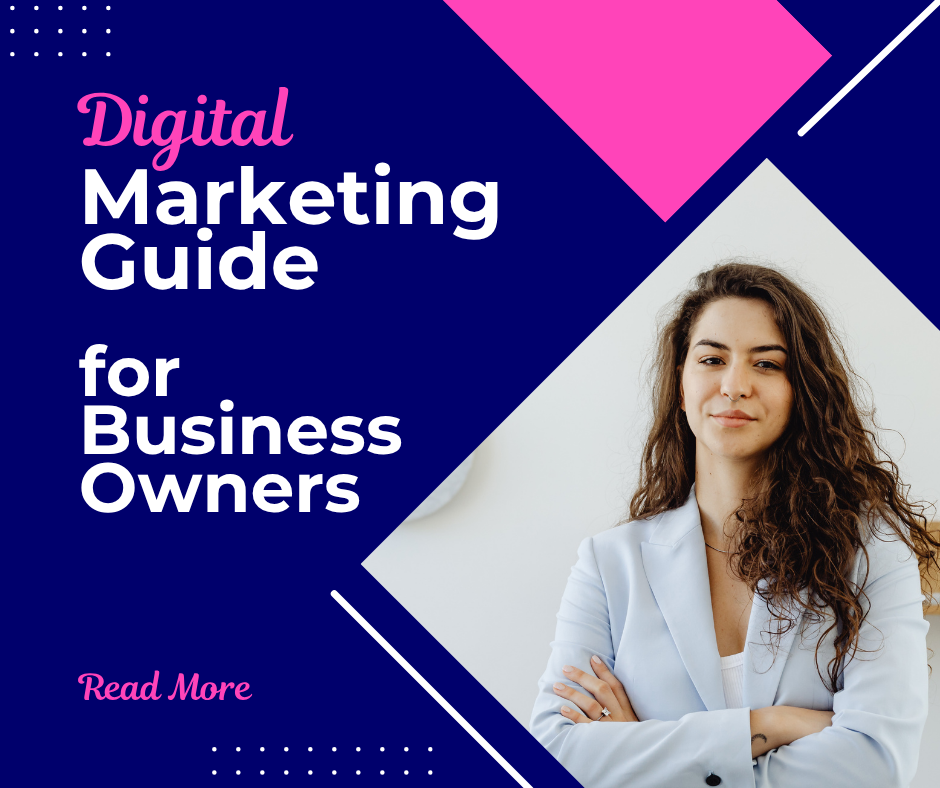Introduction
Digital marketing has become the cornerstone of successful business growth in today’s interconnected world. Whether you’re a small business owner just starting out or managing an established company, understanding digital marketing is crucial for reaching your target audience and driving sustainable growth.
In this comprehensive guide, we’ll explore what digital marketing entails, break down proven strategies you can implement immediately, and provide you with the tools and knowledge needed to succeed in the digital landscape. By the end of this article, you’ll have a clear roadmap for leveraging digital marketing to transform your business and connect with customers where they spend most of their time – online.
What Is Digital Marketing?
Digital marketing encompasses all marketing efforts that use electronic devices and the internet to connect with current and prospective customers. Unlike traditional marketing methods such as print ads or billboards, digital marketing allows businesses to reach their audience through various online channels including search engines, social media platforms, email, and websites.
The beauty of digital marketing lies in its measurability and targeting capabilities. You can track every click, conversion, and customer interaction, allowing you to make data-driven decisions that optimize your marketing budget and improve results. This approach enables businesses of all sizes to compete effectively, as you can start with a modest budget and scale up as you see positive returns.
Digital marketing also offers unprecedented personalization opportunities. You can tailor your messages to specific demographics, interests, and behaviors, creating more relevant and engaging experiences for your audience. This targeted approach typically results in higher conversion rates and better customer relationships compared to traditional mass marketing methods.
7 Essential Digital Marketing Strategies to Grow Your Business
1. Search Engine Optimization (SEO)
SEO focuses on improving your website’s visibility in search engine results pages. When potential customers search for products or services you offer, you want your business to appear at the top of those results.
Start by researching keywords your target audience uses when searching for your products or services. Create high-quality, informative content that addresses their questions and needs. Optimize your website’s technical aspects, including page loading speed, mobile responsiveness, and user experience.
2. Content Marketing
Content marketing involves creating and sharing valuable, relevant content to attract and retain your target audience. This strategy builds trust and establishes your expertise in your industry.
Develop a content calendar that includes blog posts, videos, infographics, and other formats that resonate with your audience. Focus on solving problems and providing genuine value rather than just promoting your products or services.
3. Social Media Marketing
Social media platforms offer direct access to billions of potential customers. Choose platforms where your target audience is most active, whether that’s Facebook, Instagram, LinkedIn, TikTok, or Twitter.
Create engaging content that encourages interaction and builds community around your brand. Use social media to showcase your products, share customer testimonials, and provide customer service.
4. Email Marketing
Email marketing remains one of the most cost-effective digital marketing strategies. Build an email list of interested prospects and customers, then nurture these relationships with valuable content and targeted offers.
Segment your email list based on customer preferences, purchase history, and engagement levels to deliver more personalized messages that drive better results.
5. Pay-Per-Click (PPC) Advertising
PPC advertising allows you to place ads on search engines and social media platforms, paying only when someone clicks on your ad. This strategy provides immediate visibility and can generate quick results.
Start with a small budget and test different ad copy, keywords, and targeting options to find what works best for your business. Google Ads and Facebook Ads are popular platforms for beginners.
6. Influencer Marketing
Partner with individuals who have established credibility and following in your industry. Influencer marketing can help you reach new audiences and build trust through third-party endorsements.
Choose influencers whose values align with your brand and whose audience matches your target demographic. Micro-influencers often provide better engagement rates than celebrities.
7. Marketing Automation
Marketing automation tools help you streamline repetitive tasks and deliver personalized experiences at scale. Set up automated email sequences, social media posts, and lead nurturing campaigns.
This strategy saves time while ensuring consistent communication with your audience, ultimately improving conversion rates and customer satisfaction.
Additional Digital Marketing Tools and Insights
Understanding analytics is crucial for digital marketing success. Google Analytics provides comprehensive insights into your website traffic, user behavior, and conversion paths. Use this data to identify what’s working and what needs improvement.
Customer relationship management (CRM) systems help you track and manage customer interactions across all touchpoints. Popular options include HubSpot, Salesforce, and Mailchimp, each offering different features and pricing structures.
Social media management tools like Hootsuite or Buffer allow you to schedule posts, monitor mentions, and analyze performance across multiple platforms from one dashboard. These tools save time and help maintain consistent posting schedules.
Consider investing in design tools like Canva or Adobe Creative Suite to create professional-looking graphics and videos. Visual content performs significantly better than text-only posts across all digital marketing channels.
Common Digital Marketing Mistakes to Avoid
Many businesses make the mistake of trying to be present on every digital platform simultaneously. This approach often leads to stretched resources and mediocre results. Instead, focus on mastering one or two channels before expanding to others.
Another common error is neglecting to define clear goals and metrics for success. Without specific objectives, it’s impossible to measure the effectiveness of your digital marketing efforts or make informed decisions about resource allocation.
Failing to understand your target audience is perhaps the most critical mistake. Many businesses create content and campaigns based on assumptions rather than actual customer research. Invest time in understanding your customers’ needs, preferences, and online behavior.
Inconsistent branding across different digital channels confuses potential customers and weakens your brand identity. Ensure your messaging, visual elements, and tone remain consistent whether someone encounters your brand on social media, your website, or in email communications.
Finally, many businesses expect immediate results from digital marketing efforts. Building an online presence and generating consistent leads takes time and patience. Set realistic expectations and focus on long-term sustainable growth rather than quick fixes.
Frequently Asked Questions
What is the most important digital marketing strategy for small businesses? For most small businesses, a combination of SEO and content marketing provides the best long-term value. These strategies help build organic visibility and establish authority in your industry without requiring large advertising budgets.
How much should I budget for digital marketing? A general rule of thumb is to allocate 7-10% of your total revenue to marketing, with 50-70% of that budget going to digital channels. However, this can vary significantly based on your industry, competition, and growth goals.
How long does it take to see results from digital marketing? SEO and content marketing typically take 3-6 months to show significant results, while paid advertising can generate immediate traffic. Social media marketing and email marketing fall somewhere in between, usually showing results within 1-3 months.
Do I need to hire a digital marketing agency? This depends on your budget, time availability, and expertise. Small businesses can often start with basic digital marketing efforts in-house, then consider hiring specialists or agencies as they grow and need more advanced strategies.
Conclusion
Digital marketing is no longer optional for businesses that want to thrive in today’s competitive landscape. By implementing the strategies outlined in this guide, you can build a strong online presence, attract more qualified leads, and grow your business sustainably.
Remember that successful digital marketing requires consistency, patience, and continuous learning. Start with one or two strategies that align with your business goals and resources, then gradually expand your efforts as you gain experience and see positive results.
The digital landscape continues to evolve rapidly, so stay curious and adaptable. Keep testing new approaches, measuring your results, and refining your strategies based on what works best for your specific business and audience. With dedication and the right approach, digital marketing can become your most powerful tool for business growth and customer connection.
For more detailed information about digital marketing trends and best practices, visit the Content Marketing Institute for industry insights and resources.


